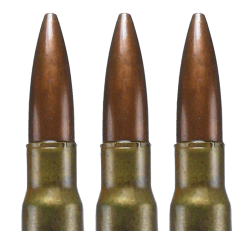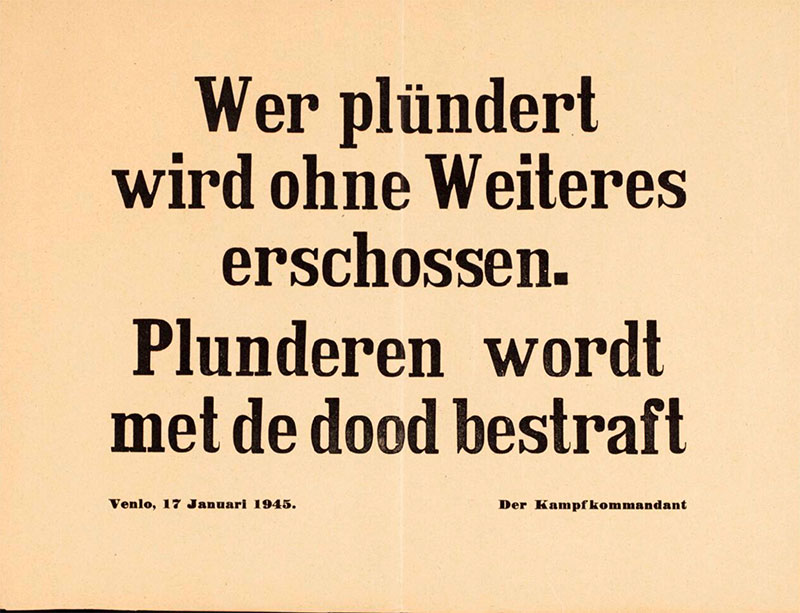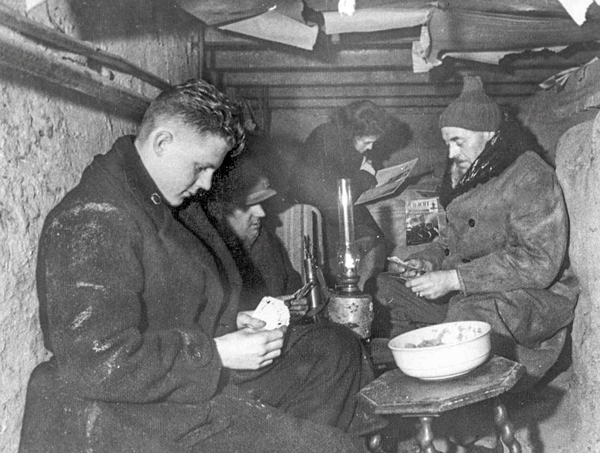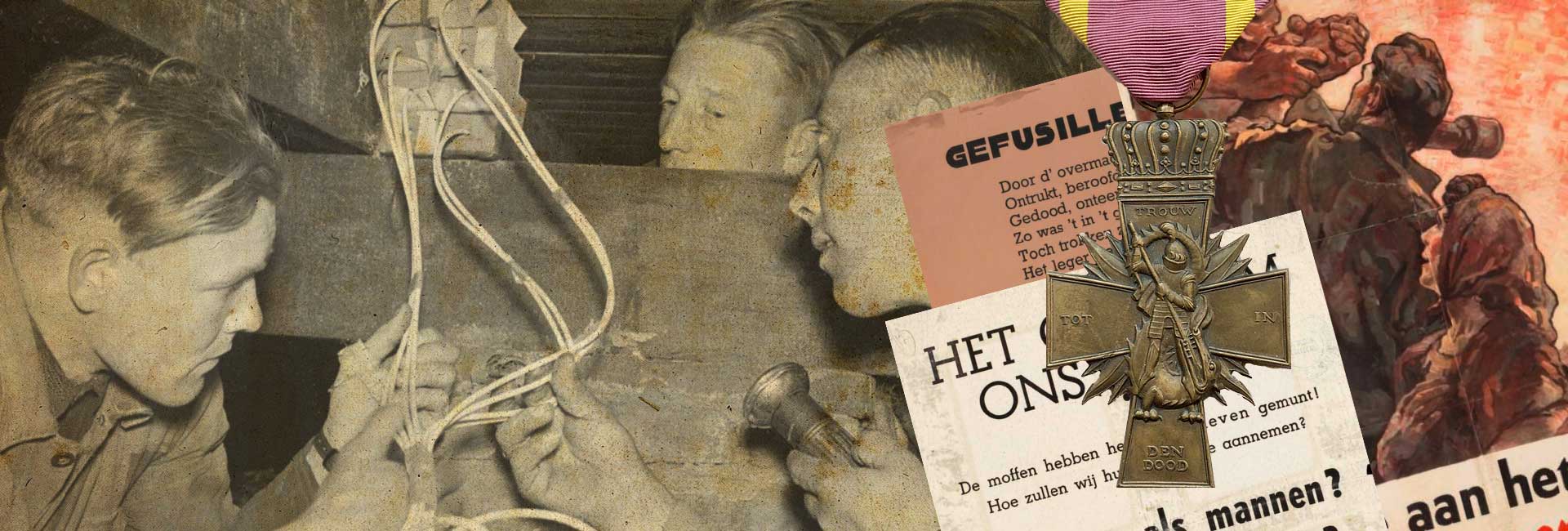
From Anne Frank to helping the Allies
Resistance in WW2
Resistance in WW2
During the Second World War, resistance occurred in all occupied countries. This varied from reading resistance newspapers to hiding pilots who had crashed, or to revolting against the occupiers themselves armed. The resistance is also referred to as 'the underground'. Among the best known resistance groups were the Polish Interior Army, the French Maquis, the Italian Comitato di Liberazione Nazionale, and the Greek and Yugoslav Partisans. The Communist Resistance was among the most fierce groups because the communist ideology was in many ways the exact opposite of that of the Nazis. In addition, communists were often militant and organized before the war. The resistance fighters are also considered heroes in Germany
Many countries had groups dedicated to opposing the Nazis. Germany itself also had various resistance groups. While Britain itself did not face an invasion, preparations were made for a resistance group called Auxiliary Units in the event of a German invasion. Various organizations were formed to form or support foreign resistance groups. Examples of this are the British SOE and the American OSS, predecessor of the CIA.
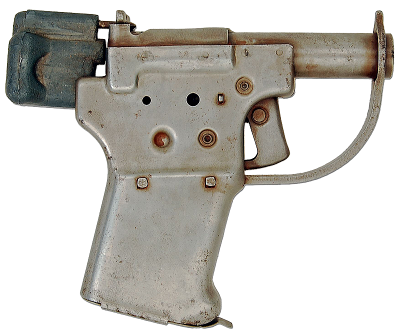
Illegal press and radio
After the Germans armies invaded several countries at the begiing of the war, illegal presses and radio arose almost immediately there after. The existing radio broadcast corporations and newspapers were no longer allowed to decide what news they would run, and were forced to use what ever the German occupier prescribed. The only way therefor for people to hear news from the London government and resistance news was through illegally kept radio's and through pamflets made by the illegal press. All this had to be done with great caution as the distribution and possession of illegal newspapers and radio's was naturallly strictly prohibited.
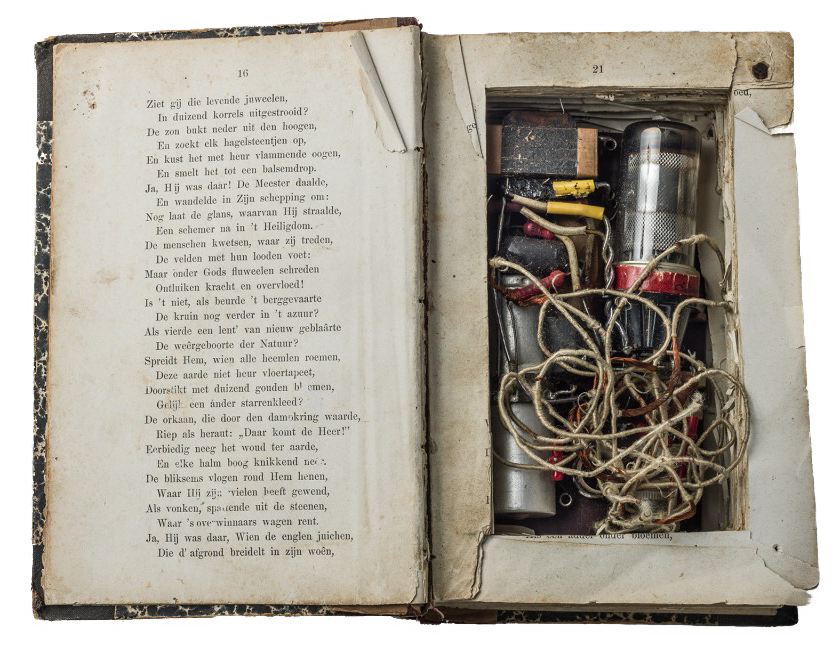
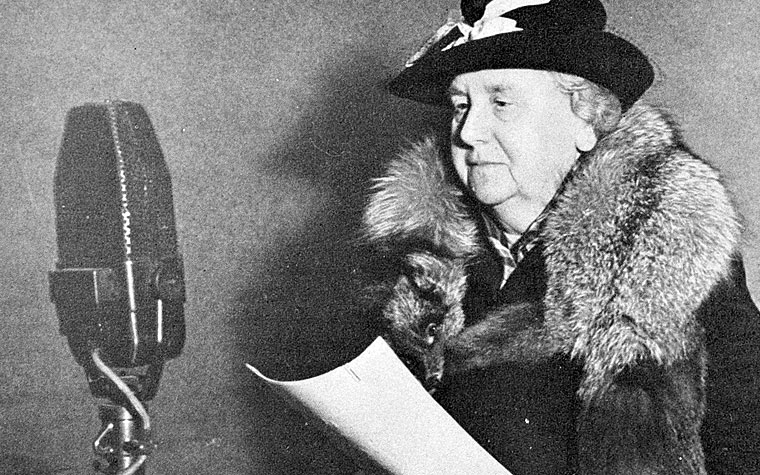
Individuals sought refuge in clandestine hiding to evade the pursuit of the Nazis.
During World War II, the Nazis arrested and persecuted large groups of people for various reasons, and many individuals, particularly Jews, members of the resistance and those evading forced labor (Arbeitseinsatz), went into hiding to escape persecution and deportation.
Hiding places varied widely, from attics and basements to farms and rural areas. Farms in the countryside were indeed favored as hiding spots due to the reduced frequency of occupation and control by the occupying forces, which made it harder for the Nazis to detect hidden individuals.
Those in hiding relied heavily on the help of others for basic necessities such as food, clothing, and other essential items. Because resources were scarce and rationed due to the war effort, assisting people in hiding was a risky endeavor, as those caught aiding them could face severe penalties, including imprisonment or even death.Unfortunately, betrayal was not uncommon during this time. Some individuals were indeed betrayed by their fellow countrymen, either due to fear, coercion, or collaboration with the occupying forces. This added to the challenges and dangers faced by those in hiding.
Because food and clothing are rationed, people in hiding need help from others to provide them with basic necessities. There are severe penalties for helping people in hiding. Also a lot of the people in hiding were betrayed by fellow countrymen.
The history of Anne Frank' s diary
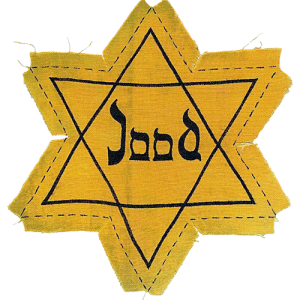
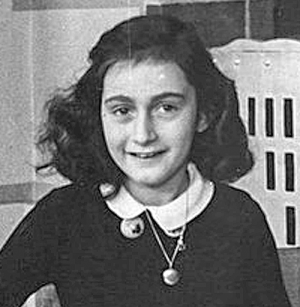
Annelies Marie (Anne) Frank (Born in Frankfurt am Main on June 12, 1929 and died in Bergen-Belsen in February 1945.
The Frank family, who were of German-Jewish descent, consisting of Otto Frank, his wife Edith, and their two daughters Margot (born on February Margot (16 February 1926, 1926 and Anne (born in Frankfurt am Main on June 12, 1929), had fled Germany and resided in Amsterdam, Netherlands during the begining of World War II. As the Nazis expanded their grip over Europe, Amsterdam felt like a refuge for the Frank family.
Gemany attacks the Netherlands
On May 10, 1940 the German army launched its offensive on the western front. This military campaign was known as Operation Fall Gelb, a meticulously devised plan that had been initially formulated in 1939. The Netherlands surrendered to the Nazis on May 15, 1940.
Into hiding in a secret annex
Fearing persecution by the Nazis, the Frank family went into hiding in July 1942, seeking refuge in a concealed annex located on the Prinsengracht canal in Amsterdam. This secret annex was a hidden space behind the building in which Opekta (pectin and spice company), Otto Frank's business was located. For more than two years, the Frank family, along with another family and a dentist, remained concealed. Relying on the assistance from an employee of Mr. Frank: Miep Gies and her husband Jan plus small group of trusted individuals, who provided them with essential supplies and support.
Betrayal
Tragically, in August 1944, an anonymous tip led to the discovery of their hiding place. The occupants of the annex were arrested by the Nazis and subsequently deported to various concentration camps. The Frank family was transported to Auschwitz. Anne and Margot were later transferred to Bergen-Belsen. The conditions in Bergen-Belsen were dire and both Anne and Margot fell victim to illness. It is assumend that they had typhus and died in early 1945, shortly before the camp's liberation by Allied forces.
Anne Frank's diary survived
Anne's father, Otto Frank, was the only member of the immediate family to survive the Holocaust. After the war, he returned to Amsterdam and, upon discovering Anne's diary among the belongings left behind, fulfilled her wish of becoming a writer. The diary, titled "The Diary of a Young Girl," was published, becoming a poignant and enduring account of life in hiding during the Nazi occupation. Anne Frank's diary has since become one of the most widely read and translated books in the world, providing a deeply personal and human perspective on the Holocaust and its impact.
WW2 resistance groups
Organized resistance groups resisted the policy of the occupier during the war. They sabotaged telephone lines, blew up buildings and railways, make areas unusable by submerging them and spying. There was also a less violent part of the resistance: helping Jews to go into hiding, smuggling ration coupons and falsifing identification papers. In the last years of the occupation, the violence became increasingly grim. Resistance fighters would also execute Germans soldiers, officials and collaborators.
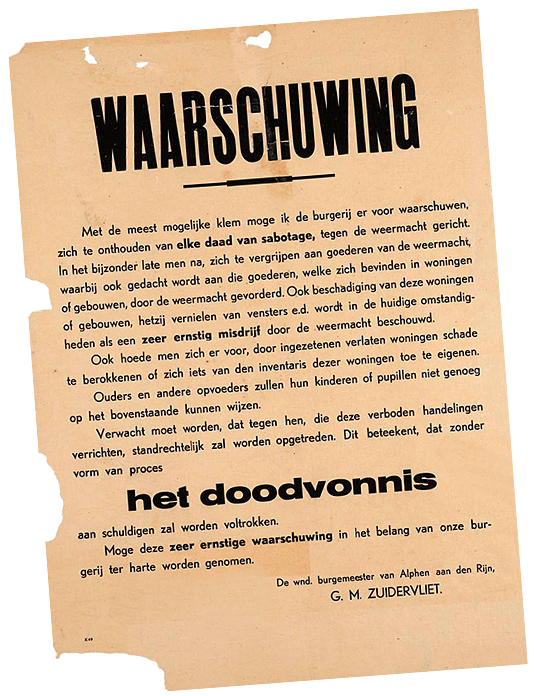
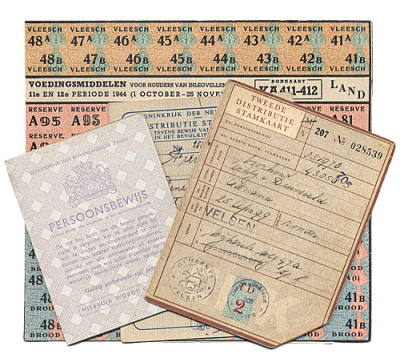
Some measures taken by the Germans met with a lot of resistance. During the occupation period, three major strikes took place in the Netherlands. The occupier reacts to all strikes with harsh reprisal measures: civilians are executed or deported to the camps.
Student and Professors' strike (1940)
When you talk about the great strike, you think of the February strike, yet it was a hit in Delft a few months earlier. On November 23, students wanted to show their support to a Jewish professor (Josephus Jitta) for being fired by the Germans. They were denied entry, after which the students went on strike on Monday 25 and Tuesday 26 November 1940. The strike came completely unexpected for the Germans and was a great success. The protest of the students in Delft is not an isolated one. Simultaneously with the firing of Jewish teachers, another anti-Jewish measure was announced by the Nazis. Everyone in government service had to sign an Aryan declaration, in short, teachers had to declare that they were not Jews. Subsequently, on November 26, 1940, two professors at the University of Leiden went on strike. Ultimately, ten teachers were fired.
February strike (1941)
On February 22, 1941, two major raids took place in Amsterdam. 425 Jewish men were herded together on Jonas Daniël Meijerplein and deported to concentration camps. In protest, tens of thousands of Amsterdammers put down their work during the following three days. This protest strike spreads to other cities and goes down in history as the February strike.
April/May strike (1943)
In the spring of 1943, one of the largest strikes in the Netherlands during the war took place. Because Germany was suffering great losses on the Eastern Front, Dutch men had to go to Germany to work in the factories. Alos known as the Arbeitseinsatz. More than 250.000 men are taken prisoner of war. Because many Dutch people find this measure unacceptable they go on strike on 29 April. As farmers also strike there is no longer a milk supply making this strike to be known also as the "milk strike."
Dutch Railroad strike (1944)
In September 1944, the Dutch government in London calls for a railway strike in the Netherlands. The strike must halt German troop transport in order for the Allied forces to be able to initiate their air landings at Arnhem for Operation Market Garden. Over 30.000 rail workers responded to the call. The Germans are not bothered by the strike because German soldiers and staff were used to operate the trains.
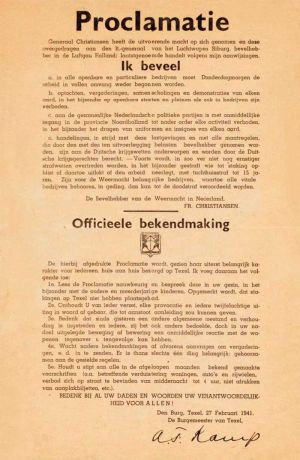
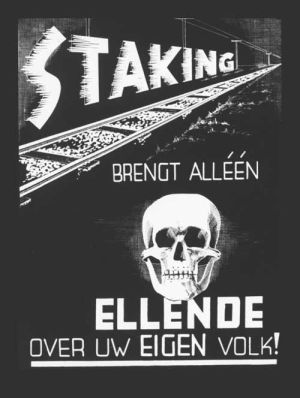
The Hongerwinter
The harsh winter of 1944 to 1945 in the Netherlands came to be known as the "Hongerwinter" or hunger winter. With a great shortage of food and fuel for the Dutch population leading to famine, especially in the larger cities Rotterdam, Amsterdam, the Heague and other cities in the west.
Because the rivers and the IJsselmeer froze over at the end of December and land transport was no longer possible, the west of the Netherlands was cut off from all possible food and relief goods, fuels, clothing and medicines. The Central Shipping Company for the Food Supply could no longer sail. With the liberation in reach, more than 20.000 Dutch people died of cold or starvation as a result of this blockade.
Sabotage and espionage
Espionage played an important role in the Dutch resistance during the Second World War. The resistance worked at the risk of their own lives during the war to disrupt the activities of the Nazis and weaken their positions. The resistance sabotages railway lines and other supply measures of the occupier, the registration system and buildings where Germans lived and worked. Resistance fighters also infiltrated German organizations to spy on and sabotage the work of the occupier from within.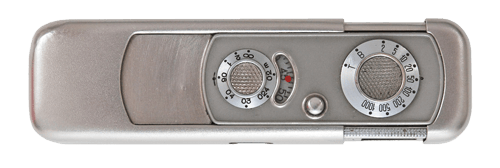
Minox Riga espionage camera 1938 - 1943
The biggest problem was connecting from the Netherlands to London and vice versa. They not only had to overcome logistical problems, but above all they had to deal with the very active German counterintelligence. Espionage was carried out by resistance groups as part of their activity, such as with the Order Service (OD) or as a main activity, such as by the group around Allard Oosterhuis. For another part, the initiative came from England, and then either directly from English intelligence services, or from Dutch in collaboration with the English. This meant that secret agents were dropped into occupied territory, usually together with a wireless operator.
Needless to say the penalties were extremely severe
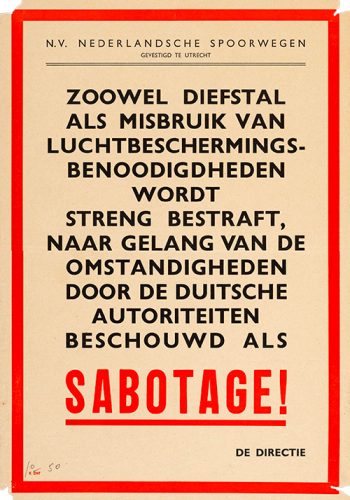
Helping Allied soldiers
During the war, the Dutch resistance also helped Allied soldiers and pilots who had been shot down over The Netherlands. The resistance rounded them up and helped them escape the occupied Netherlands via clandestine routes. The pilots sometimes secretly got on board boats to take them across the English channel back to England or crossed the Pyrenees on foot. Again there were very severe penalties for helping Allies solders and airmen.
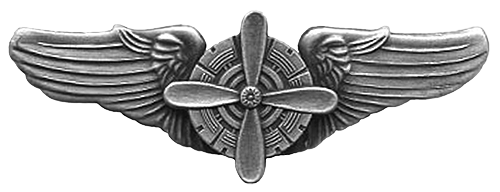
Nazi retaliations for illegal activities
There were severe penalties for resisting German authorities. Resistance fighters were captured, imprisoned, tortured or executed without trial. Some were sent to concentration camps where the living conditions were appaling. The German occupier also took retaliatory measures. Innocent civilians or prisoners were rounded up and executed to avenge acts of resistance and to deter resistance fighters. Bystanders are obliged to watch these innocent people being murdered to give a message.
